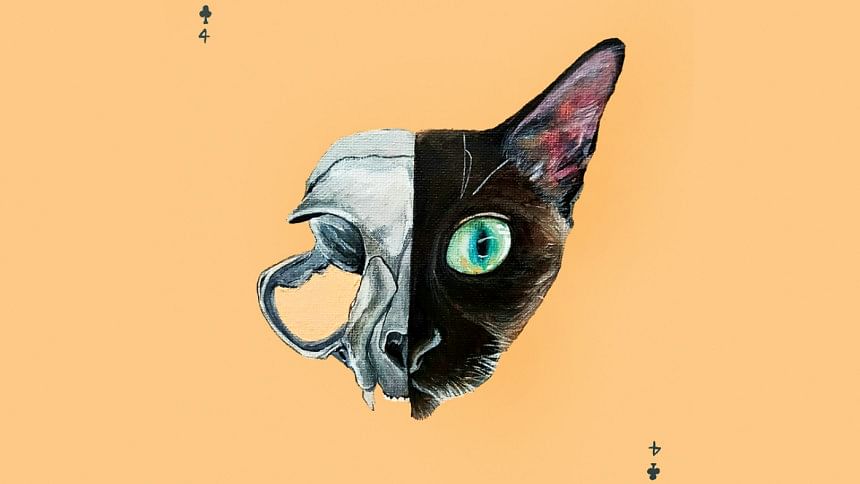The passage of the Animal Welfare Bill 2019: Only the beginning

On July 7, I was in the auditorium of the Bangladesh national parliament house, holding my breath, squeezing my colleague's hand, and bursting in excitement when the deputy Speaker took votes and passed the new bill. From the time the cabinet approved the draft on February 11 till July 7, endless meetings and editing sessions had taken place between Obhoyaronno [an animal welfare organisation] and the parliamentary sub-committee (more on that later).
Yesterday, my colleague sent me a gazetted copy of the bill. The bill which is still in my purse in the form of a thin, blue booklet, with countless footnotes and edits in red ink. I had been keeping the booklet safe from Bear (my dog) for the past few months. It finally sank in. Bangladesh had passed a new animal welfare law after 100 years!
Obhoyaronno first proposed an update of the existing animal cruelty law in 2013. A group of lawyers helped us prepare the draft (in English) and we were advised by one of the advisers to the PM to submit it to the livestock department for vetting and translation. What we didn't realise is that the livestock department didn't appreciate an "outsider" meddling in their business.

The ministry took our original draft, changed it significantly, chopped off entire segments, and refused to let us see the final draft. We continued to pursue our version of the bill anyway and sent it to the right people to be placed in the cabinet. In 2016, the cabinet committee ended up approving a preliminary draft—a hybrid of our version and the livestock ministry's version. We were gravely unhappy but waited for it to come back to the law ministry and then the livestock ministry. Neither ministries cooperated much.
Fast forward to February 2019. A 'final' version of the bill has just been approved by the cabinet. Mind you, the cabinet is headed by the honorable Prime Minister herself and when you hear the words *final* and *cabinet* in the same sentence, you do feel disarmed and defeated. We thought we could no longer intervene or make changes. At least that's what the livestock department had us believe.
While the bill did say that one must be compassionate toward stray animals (namely cats and dogs), it also listed half a dozen provisions (read: loopholes) under which the livestock department and/or their veterinarians could kill and remove dogs. These provisions were there in a bid to protect the community from the (perceived) threats posed by street animals. It is also the kind of provision which eventually led to indiscriminate dog culling in the past. The 2014 writ petition by Obhoyaronno had placed a nationwide injunction order against dog culling and animal sports. This new bill, if passed, would have reversed that order and could potentially allow mass dog culling to resume once more.
Moreover, the new draft completely left out farm animal welfare from the purview of the new bill even though the government has had a World Organisation for Animal Health (OIE) focal person for many years, who regularly attended the annual farm animal welfare conferences. A law without farm animal welfare would have been more regressive than the one that was being replaced. Meaning, one could stuff chilies into a cow's eyes, tie a goat with a short rope for hours in the heat, or hang live chickens upside down all day long, and face no consequences.
We were devastated.
We reached out to some of my friends and we started knocking on some big doors and asked for help with this new bill. Turns out, the 'final' draft which was approved by the cabinet didn't have to be the final one and that it would go through another round of vetting by the parliament. For each bill, a parliamentary sub-committee is formed, and their job is to study the bill extensively and put forth recommendations, which not even the livestock ministry can dismiss. Jackpot!
We were put in touch with the chairman of the sub-committee, the legislative draftsman for the parliament, and the former personal secretary of the late Suranjit Sengupta, who was known for tearing apart bills even after the cabinet's approval. Finally, we were on the right track!
We went through the bill with the help of our lawyer friends until it looked like a piece of Swiss cheese—jotted down our recommendations and made our way into the first meeting of the steering committee in March. Representatives of the livestock department were also present, confident that the bill would be passed that very week. Luckily, the committee heard our 30-point recommendation and accepted our prayer for a time extension. The bill was put on hold.
The following weeks went into incorporating the new changes into the draft. The committee met two more times after that and although the committee didn't accept all our recommendations, we felt that they met us half way.
According to the revised and final bill:
Not only that street/unowned animals cannot be killed, they also cannot be removed from their locality. Anyone harming/dislocating/removing/killing street animals will face up to two years of imprisonment or Tk 50,000, or both. (This recommendation was accepted as is)
If a street animal is suspected to be rabid, then the animal must be observed first as per the international protocol to confirm rabies. If confirmed, then and only then can the animal be euthanised following a humane protocol. (This recommendation was accepted as is)
All breeding kennels must be brought under registration and supervision under this new law. The codes by which these kennel should operate will be set following international standards. If anyone is caught operating without a license, or breaking a code, the authority can confiscate the business. (We recommended shutting down the kennels altogether, but settled for this)
Although killing livestock for food or religious rituals will not be considered cruelty, new codes will be set to ensure OIE/humane standards of rearing/farming, transporting, and slaughtering of farm animals, even when it is for food or religious sacrifice. These codes will be set following international animal welfare standards for farm animals.
No animal can be used for entertainment, exhibition, or to generate income without prior permission of the authorities. (This was included with the begging mahouts in mind).
Reality check
A day after the new bill was passed, Heera the lion had died in Dhaka zoo, possibly from neglect. Two days later, a group of people in Kishoreganj culled nearly 300 street dogs. People were flabbergasted! How could this be? Don't we have a new law now? As I was writing this, I came to know that someone was poisoning dogs in Azimpur. The man who reached out to us was an advocate himself whose own dog had just been killed by poisoning. The punishment for poisoning is now up to two years of imprisonment and a fine of Tk 50,000. The man was still unwilling to go to the police because he didn't want to make enemies with his neighbors.
The truth is, a few decades of practice and attitude will not change overnight just because there is a new law. This law is indeed one of the most important developments in the field of animal welfare in Bangladesh, but it is merely a tool, which can be leveraged to build and base a larger movement on. The new law is not the end of a movement, but a beginning. There needs to be a sustained campaign to bring about policy changes, to raise awareness amongst the law implementing authorities, and most importantly, changes in people's behaviour. The law exists for all, and it is upon every citizen and animal lover to harness its benefits. No organisation is strong or large enough to combat animal cruelty on its own no matter how strong the law is. Even with the new law, if animal lovers don't muster the strength to fight animal cruelty, the abusers will end up having the last laugh. If you are an animal lover, will you be able to live with that?
Rubaiya Ahmad is the founder and chairman of Obhoyaronno - Bangladesh Animal Welfare Foundation.

 For all latest news, follow The Daily Star's Google News channel.
For all latest news, follow The Daily Star's Google News channel. 



Comments